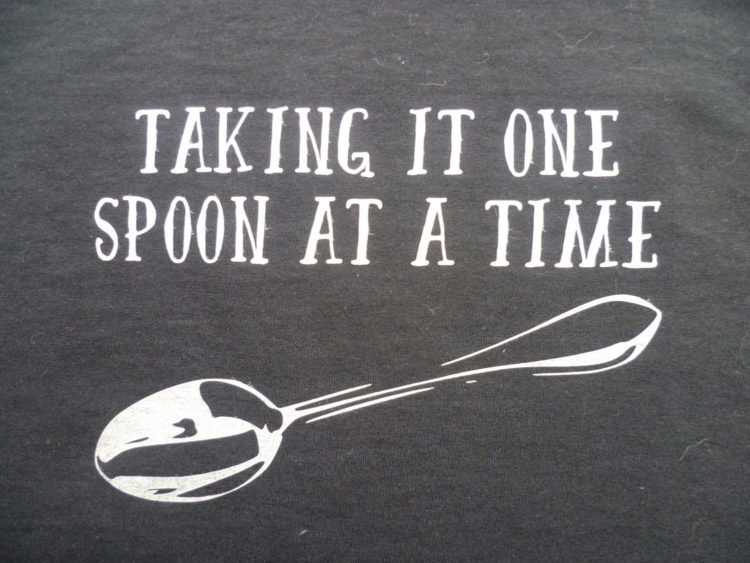If you’re like me, at one point in your life you’ve stumbled across the Spoon Theory – be it through a friend, a doctor or the internet. If you haven’t, allow me to share.
• What is Ehlers-Danlos Syndrome?
• What Are Common Ehlers-Danlos Syndrome Symptoms?
I was going through a painful flare-up at the time and feeling ever so useless when my therapist informed me about the Spoon Theory, a metaphor for people with chronic illnesses that changed my life. The Spoon Theory dictates that every person is given a specific amount of spoons and that to complete any task or action requires a different amount of them. Once you’ve used all your spoons for the day, they’re gone, forever, and you have to wait for another day to receive more.
People with disabilities, however, receive fewer spoons, and therefore are unable to do as much as others.
This theory at first gave me comfort. It was extremely validating to know there was a theory out there for people like me who are unable to do everyday basic tasks without it seeming like the end of the world.
But then, one morning, I woke up without any spoons. I had nothing – not even a makeshift-out-of-foil-spoon you make when you forget to pack one with your yogurt. I had no energy left to my name and all of the pain, yet I had responsibilities that must be taken care of.
If you’re like me, you’ve woken up without spoons. And if you’re like me, you often find yourself lost and not knowing how to practice self-care. Here are some tips I’ve come up with throughout my journey.
1. Makeup Remover Pads
Instead of washing my face with soap and water, exfoliating, moisturizing and doing all the various other things I should probably do to my face, I rely on makeup remover wipes. They remove the dirt and take minimal effort. This will keep you feeling semi-clean on the days you can’t get out of bed (and I recommend keeping a package of face wipes by your bed).
2. Post-Mates/GrubHub/Eat24
When you don’t have the energy to eat, thinking about even making food seems impossible. I used to rely on cereal and milk, and even though it is one of my favorite meals, it’s not going to cut it for every meal of the day. I suggest using a delivery service to order some real food. Order something with veggies and protein, to help replenish whatever energy you may have.
3. Ask for Help
Either before a flare-up or during one, talk to a loved one about your condition. Explain how it makes everyday things seem impossible, and ask for help and support. When you have a flare-up, let that person know you’re struggling, and see if they can help you in any way – be it buying groceries or picking your kids up from school.


